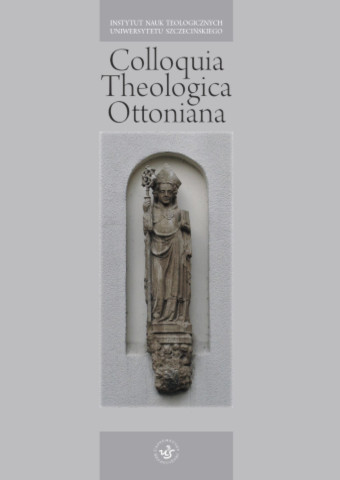
ISSN: 1731-0555
eISSN: 2353-2998
OAI
DOI: 10.18276/cto.2023.39-07




Issue archive /
39/2023
Is Non-Ontological Structuralism Hypothetical?
| Authors: |
Marcin
Czakon

Katolicki Uniwersytet Lubelski Jana Pawła II |
| Keywords: | philosophy of mathematics Resnik non-ontological structuralism hypothetical structuralism |
| Data publikacji całości: | 2023 |
| Page range: | 19 (153-171) |
Abstract
Michael Resnik, the founder of modern structuralism in the philosophy of mathematics, changed his views and proposed a new non-ontological structuralism. Resnik is considered a prominent figure in modern structuralism within the realm of contemporary philosophy of mathematics, and his sui generis structuralism is regarded as one of the most significant and frequently discussed positions in the field. This article examines the motivations behind Resnik’s change of perspective. His new position is presented in detail, and an attempt is made to contrast it with selected views in the philosophy of mathematics. The discussion is conducted in the context of the Frege-Hilbert Controversy, which centers on the status of mathematical theory axioms and the meaning attributed to primary terms. The three-stage concept of the development of deductive sciences, proposed by Kazimierz Ajdukiewicz, is also introduced. This concept, inspired by Hilbert’s ideas, outlines three stages in the evolution of deductive theories: (1) pre-axiomatic deductive, (2) axiomatic deductive, (3) abstract axiomatic. Each of these stages possesses unique characteristics that illuminate the nature of deductive theories, particularly in relation to the approach to sets of axioms and primary terms within these theories. Additionally, two styles of practicing deductive theories (assertive and hypothetical) are discussed. Ultimately, an exploration of Resnik’s non-ontological structuralism provides insight into how this novel structuralist concept should be understood and clarifies the author’s actual claims. Alongside these distinctions, a new conception of hypothetical structuralism, distinct from non-ontological structuralism, is formulated. This novel structuralism is rooted in the hypothetical approach to practicing deductive theories.
Download file
Article file
Bibliography
| 1. | Ajdukiewicz K., Pojęcie dowodu w znaczeniu logicznym, in: idem, Język i poznanie, Vol. 1, Państwowe Wydawnictwo Naukowe, Warszawa 1960. |
| 2. | Ajdukiewicz K., Pragmatic Logic, D. Reidel Publishing Company, Dordrecht 1974. |
| 3. | Bonevac D., Deduction: Introductory Symbolic Logic, Blackwell Publishing, Malden, MA 2003. |
| 4. | Doherty F., Hilbertian Structuralism and the Frege-Hilbert Controversy, “Philosophia Mathematica” 27 (2019) 3, pp. 335–361. |
| 5. | Gabriel G. et al. (eds.), Gottlob Frege: Philosophical and Mathematical Correspondence, Blackwell, Oxford 1980. |
| 6. | Hellman G., Three Varieties of Mathematical Structuralism, “Philosophia Mathematica” 9 (2001) 2, pp. 184–211. |
| 7. | Hilbert D., Grundlagen der Geometrie, B.G. Teubner, Leipzig 1903. |
| 8. | Reck E., Schiemer G., Structuralism in the Philosophy of Mathematics, in: Stanford Encyclopedia in Philosophy (SEP) [accessed: 11.09.2020]. |
| 9. | Resnik M., The Frege-Hilbert Controversy, “Philosophy and Phenomenological Research” 34 (1974) 3, pp. 386–403. |
| 10. | Resnik M., Mathematics as a Science of Patterns: Ontology and Reference, “Noûs” 15 (1981) 4, pp. 529–550. |
| 11. | Resnik M., Mathematics as a Science of Patterns: Epistemology, “Noûs” 16 (1982) 1, pp. 95-105. |
| 12. | Resnik M., Mathematics from the Structural Point of View, “Revue Internationale de Philosophie” 42 (1988) 167, pp. 400–424. |
| 13. | Resnik M., Structural Relativity, “Structural Relativity” 4 (1996) 2, pp. 83–99. |
| 14. | Resnik M., Mathematics as a Science of Patterns, Clarendon Press, Oxford 1997. |
| 15. | Resnik M., Non-ontological Structuralism, “Structural Relativity” 27 (2019) 3, pp. 303–315. |
| 16. | Shapiro S., Categories, Structures, and the Frege-Hilbert Controversy: The Status of Metamathematics, “Philosophia Mathematica” 13 (2005) 3, pp. 61–77. |
| 17. | Tkaczyk M., Logika czasu empirycznego, Wydawnictwo KUL, Lublin 2009. |
| 18. | Tkaczyk M., Kazimierz Ajdukiewicz’s Philosophy of Mathematics, “Stud East Eur Thought” 68 (2016), pp. 21–38. |